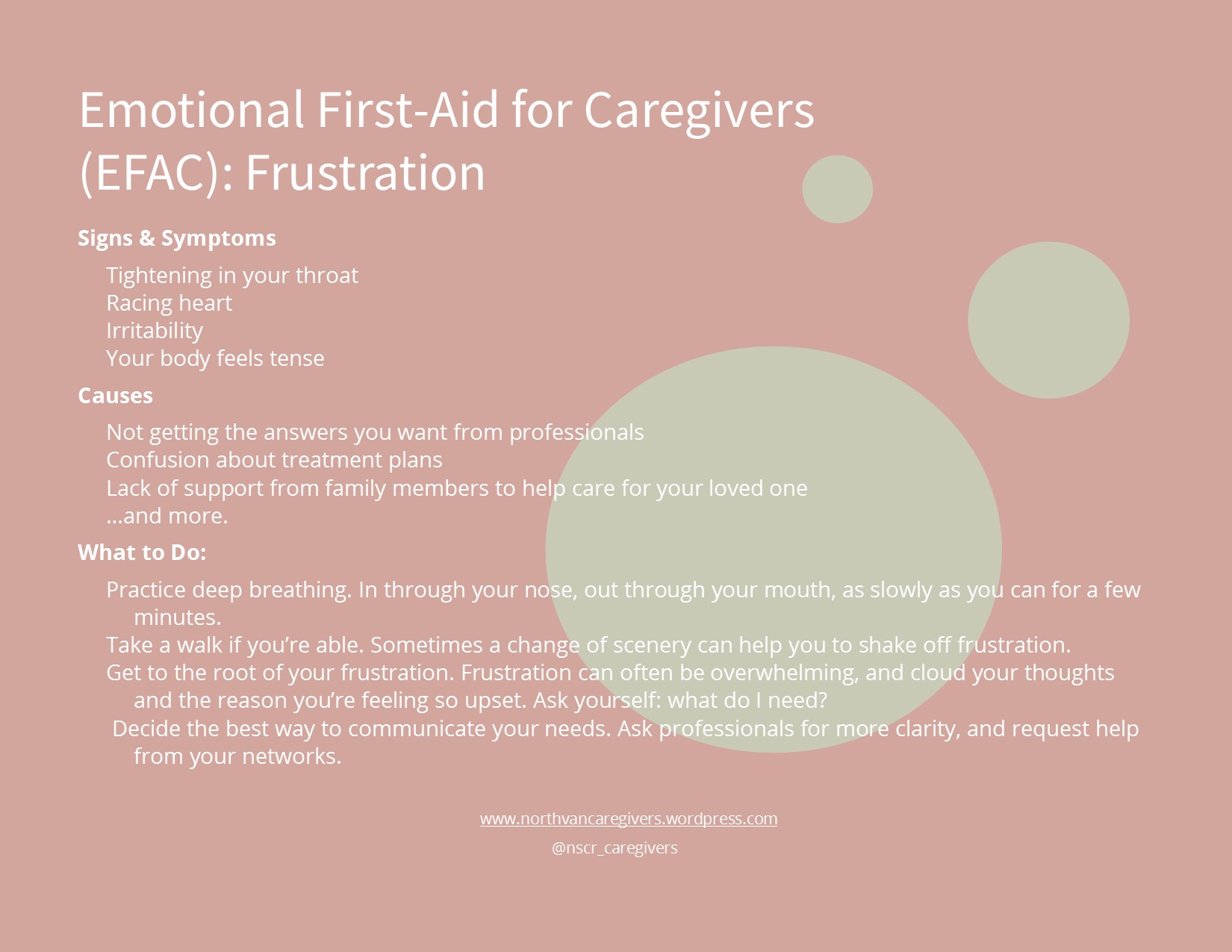Have you tried breathwork? “Breathwork is about grounding the nervous system, moving energy, and integrating our past,” says Ashley Neese. There are many ways to practice, but this simple, 2-minute exercise is a great way to start. If you need a pick-me-up in the middle of your day, or some motivation to get going in the morning, give it a try! It claims to work better than a cup of coffee. What do you think?
Month: March 2019
Respite is essential for your health
“To be self-nurturing is to have the courage to pay attention to your needs” – Alan Wolfelt
Have you considered accessing respite services for your loved one? It can be a tough decision to make, but one that is incredibly beneficial to your well-being. Read this post from the archives to learn four positive effects of accessing respite.
My definition of respite: Time away from regular caregiving duties that gives you a much deserved break, and helps you regain strength.
It is normal for a caregiver to have LOTS on their mind. Lists of phone calls they need to make; upcoming appointments for a loved one; worries about house maintenance or finances; the busyness of preparing meals and keeping the house organized.
All of this can be stressful and tiring, even when you are supporting a parent or spouse out of a sincere desire to be there for them … even when you truly love this person and feel positive about your ability to manage all that needs to be done.
Whether your care partner lives with you or elsewhere, it’s essential that you sometimes get a break. For your mental well-being and peace of mind, it is helpful to have your loved one looked after by professional…
View original post 586 more words
How Light Therapy Can Help Caregivers
Fortunately, Spring is just around the corner. Unfortunately, as many West Coast dwellers know all too well, it does not mean the end of overcast days.
If you know that you suffer from SAD (Seasonal Affective Disorder), or you’re simply aware that you feel down during the cold, dark months, you may benefit from a light therapy box.

Light Therapy Boxes deliver a bright light that mimics outdoor light, and has been shown to boost moods and energy when people sit near them. They have been used to treat depression, SAD, sleep disorders, and even dementia. So, how can they help caregivers?
Caregivers often experience low-moods and sleep deprivation, and light therapy may help with these challenges. Try starting flipping on a light therapy box first thing in the morning and writing in a journal, reading, or meditating for 30 minutes before getting out of bed. If you can carve out some time in the early afternoon, have your lunch or some tea next to your light.
If you are curious about trying a light therapy box, the best thing to do first is consult your doctor. Certain conditions, such as bi-polar disorder, may require specific guidelines for use, and your doctor will be able to advise you if it’s appropriate for you or your care partner. Make sure that when you’re purchasing a light therapy box, you are buying one that is 10,000 lux or above to reap the therapeutic effects.
Have you tried using a light therapy box? We’d love to hear about your experience!
Cassandra Van Dyck
A Week In the Life Of A Caregiver
Monday March 4-Sunday March 10th, 2019

Monday:
Finally, I finish the 300-page tome ‘Rage Becomes Her: The Power of Women’s Anger’ by Soraya Chemaly (Atria Books, 2018), actually a book on 14-day loan from the library and it was so good, I finished it in less than a week (more on that book in next post).
Wednesday:
A trip to Tapestry, an independent living residence for seniors near the UBC (University of British Columbia) campus, as I’m currently scouting out housing options for my parents. Having finished reading the ‘Worry Workbook’ by Melissa Robichaud and Kristin Buhr (New Harbinger, 2018) I’m braver about facing my own and my parents’ future.
At Tapestry, there is even a 50-seat lecture hall, as many of the residents are retired university professors, and academics never stop working there’s really no set age to stop when you’re in academia. Because of the ‘Worry Workbook’, I set goals every week for what are called ‘behavioral experiments’. For example, I could say to myself : “if I’m nice to myself maybe I’ll work harder” and test out my theory. Does being nice actually inspire you to work harder? And then you try it out.
Friday:
International Women’s Day: I’m thinking of my mother, an academic since her 30’s. One of her profs recognized her abilities and got her started. She taught me about being strong. There’s an amusing story she told me about the time she was mistaken for cleaning staff in her department. It was assumed, because she was female, that she must be cleaning staff and not a prof. She answered politely but firmly that she was, in fact, on staff as prof. The life of a female academic is not an easy one.
Sunday:
I have my hummingbird feeder ready for when the season starts to warm up. A delightful colour brochure of all the world’s different kinds of hummingbirds. There is quite a variety. I think my parents will enjoy watching them feed. A Whatsapp call from siblings. How gratifying, to feel supported. Oftentimes technology is more of a burden, but today it is digital magic that brings our family together.
By Calm Pond
CBC’s The Caregivers’ Club
“It’s the club that no one wants to join.”

If you are caring for or have cared for a loved one with dementia, you may find solace in this touching documentary. Curl up with a cup of tea and some tissues, and be reminded that there are others out there going through similar experiences. It may not be a club you wanted to join, but you may find some comfort there.
Emotional First-Aid for Caregivers (EFAC): Frustration
Do you struggle with frustration? It can be a common, challenging emotion on your caregiving journey. Between the stresses of navigating the healthcare system, managing your personal relationship with your loved one, and finding enough support to care for your spouse or parent, frustration is sure to come up sometimes!
Print off this tip sheet and keep it with you. When you’re feeling frustrated, take a look and work through the steps to ground yourself.
What do you do when you’re frustrated? We’d love to hear from you in our comments!
Today we’re introducing a new series on the North Van Caregivers blog: Emotional First-Aid for Caregivers (EFAC). We created this series in hopes of supporting unpaid family caregivers through the triggering emotions that often come up on the caregiving journey. These posts should help you to identify the difficult emotions you’re experiencing and give you some tools to work through them quickly. You can print off the image or save it to your phone for easy reference.
Please remember to seek support if you’re noticing the same emotions coming up over and over again, either from a network group or a professional counsellor or therapist. Extra support is often needed and helpful when you’re finding yourself stuck or suffering.

What other emotions would you like us to cover? Please let us know in our comments!
Cassandra Van Dyck
